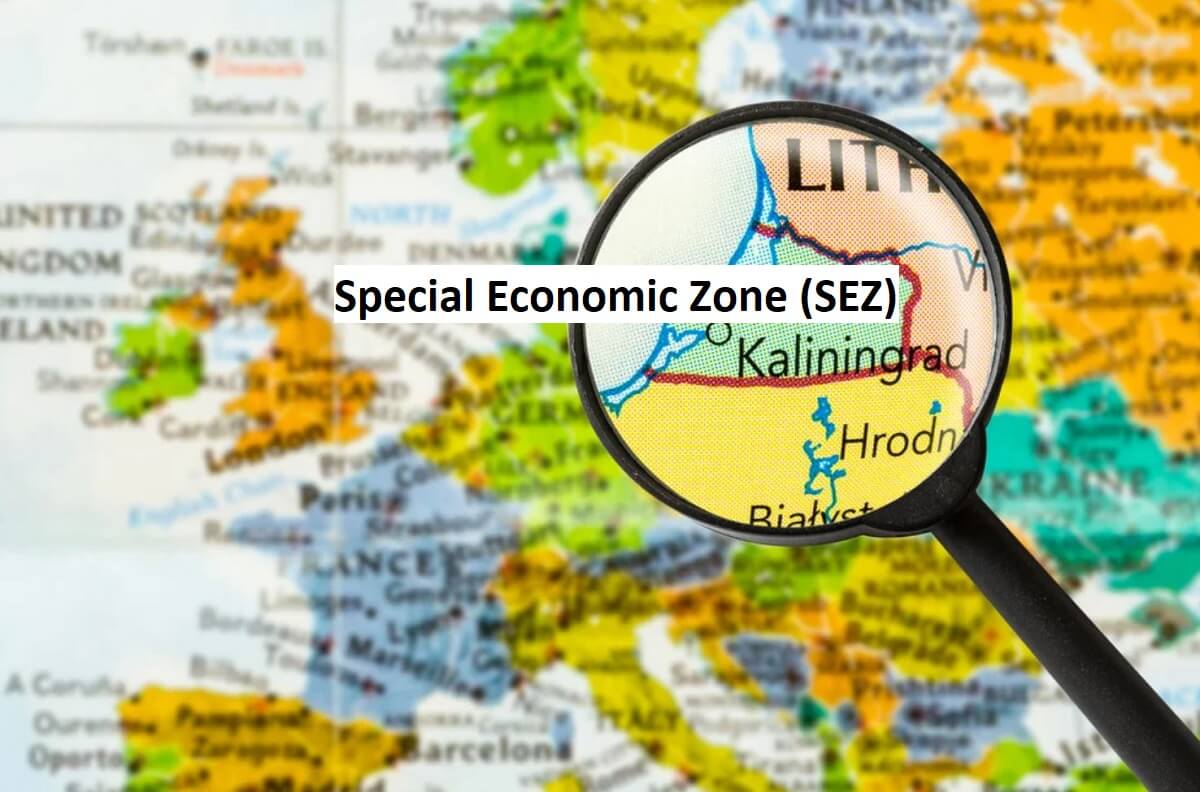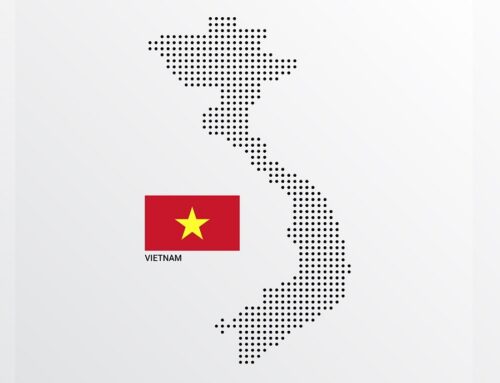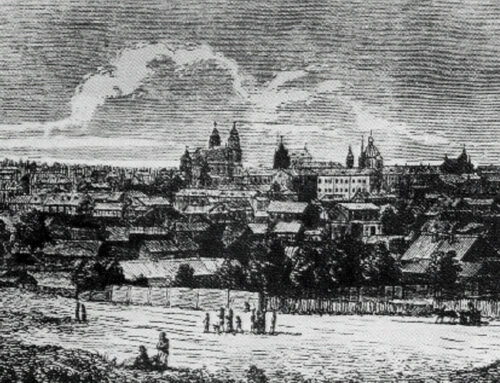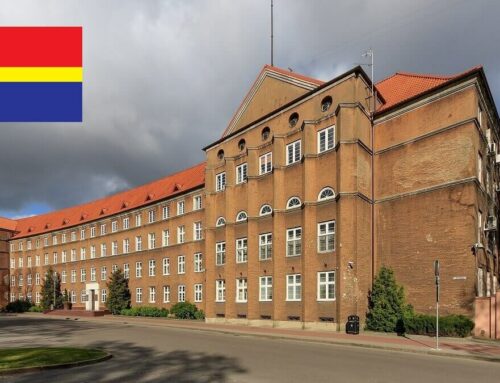Since 1996 Kaliningrad has had the status of a Special Economic Zone (SEZ). The status is provided to the oblast until December 31, 2045. It was designed with an intent to make Russia an offshore country. Kaliningrad was supposed to be a gate for the Western investment, entering Russia. Kaliningrad was among many other Russian entities to be given the status. However, it was the most advantageous project due to its geography and access to water.
Being surrounded by the European Union, Kaliningrad SEZ boasts zero percent profits tax for the first six years of the company’s operation. After the six trial years, the companies are presented with a reduced rate of ten percent for another six years. As far as property tax is concerned, it is absent for the first six years and in the following six it accounts for 1,1%. First five years there is no land tax, as well. Among the most important SEZ privileges was the duty-free export of processed goods of imported raw materials. Such conditions are tempting for businesses. Especially for the foreign investments. Kaliningrad oblast experienced an economic boom, which was unheard of for the region. The annual GDP growth rates in Kaliningrad exceeded 10%, whereas Russia’s GDP growth rate would remain 4-7% between 2001-2004 (Fig. 1)1. Thus, Kaliningrad’s economy outperformed the Russian one. With the same growth rate Kaliningrad was likely to double its economy by 2014 (a growth rate of 7.2% was required for that to happen)2. By Russian standards Kaliningrad’s infrastructure has always been well-developed. Accordingly, Russia’s only ice-free port in the Baltic Sea is located there. Thus, the oblast was susceptible to success with the SEZ status in place. Many foreign companies came to Kaliningrad to bear the fruits of the SEZ residency. The oblast was developing rapidly with the life quality being increased. The average salary in Kaliningrad in 2000, at the early stage of the SEZ status, was 1750 Russian rubles; the meat cost 38 rubles per kg, sugar 13 rubles per kg, a loaf of bread – 5,9 rubles.

However, the status of SEZ privileges would be altered over the years. On April 1, 2006, the provisions of Article 23 excluded the possibility of exporting products manufactured on the territory of the SEZ in the Kaliningrad region from Russian raw materials and components, including those grown on the basis of imported raw materials, without paying customs duties. This norm especially affected the activities of agro-industrial enterprises of the region, producing rapeseed oil, where, in the presence of a deep degree of processing of products in the region, export duties must be paid upon export. Whereas the former law on SEZ did not provide for the payment of export duty. After this amendment, many companies would go bankrupt and depart the oblast. After the 2016 amendment, duty-free export of processed goods would now be gifted only to certain companies. Before the amendment each company that produced processed goods was granted duty-free import after the checking of the local committee, which involved mostly a chemical analysis of the manufacturing process. However, after the amendment the companies had to prove that they process the goods to the committee, which would come from Moscow and would not involve a chemical analysis. In the post-amendment era, processing would be hard to prove. Even extremely problematic for the companies, which were not ready to ‘fall in Moscow’s favour’. One such example is the company called ‘Baltic Coatings’, which was producing paint and varnish products from imported goods. It was a European company, which opted to have the factory in Kaliningrad due to the duty free export of the processed goods. Many companies would come to the oblast for the same reason, creating a number of job openings. ‘Baltic Coatings’ alone housed around 250 employees. However, after the amendment, the committee declared the production of paint and varnish products to be unprocessed, hence, the company had to pay the duty. Despite the chemist’s analyses stating that it is a processed production, Russia’s Supreme Court ruled that the company is not eligible for the duty-free import. Shortly, after the verdict the company closed, being one of many.
Moreover, the law on SEZ also exempts from customs duties and from other payments levied during the customs clearance of goods (except for customs duties), but the list of these payments remains undefined. Making it problematic for the ‘unfavored’ companies to actually receive them. Federal legislation establishes the principle of the unity of the economic space, free movement of goods, services and financial resources, support for competition and method of economic activity, as well as the prevention of any obstacles to the free movement of goods, services and financial resources on the territory of the Russian Federation. But the separation of the Kaliningrad region from the main territory of the country by customs borders, that is, the exclave of the region, is in no way taken into account in federal legislation.
In 2006 the average Kaliningrad salary would be 9720 rubles; the meat was 89 rubles per kg, sugar was 18 rubles per kg, and a loaf of bread cost 10.4 rubles. On average the prices doubled in six years, however, the salary would be five times bigger than in 2003. In 2012, six years after the first amendment, the average monthly salary would be 21526 rubles; sugar cost 34 rubles per kg, meat 352 rubles per kg and a loaf of bread was 22 rubles. Thus, the salary increased by 2.2 times, whereas the prices increased by 3.5 times. Overall, quality of life in the region progressed with time, as in all of Russia, however, the wealth of the population decreased significantly, which is surprising considering the capabilities of the oblast. Amendments on SEZ impeded the economic development of the oblast and diminished the initial purpose of SEZ’s implementation.
Currently, SEZ is still in place, however, due to the amendments it fails to contribute to the attraction of investments. The amendments in SEZ status contributed to the corruption levels increasing and facilitated Kaliningrad’s dependency on Moscow. Russia’s foreign policy also impedes regional economic development with the first recession starting in 2014 after annexation of the Crimean Peninsula.
References:
1 https://www.researchgate.net/figure/Annual-GDP-change-in-Kaliningrad-and-Russia-y-o-y_fig1_304352002
2 Ibid.
3 https://kaliningradfirst-ru.translate.goog/282324?_x_tr_sl=ru&_x_tr_tl=en&_x_tr_hl=en&_x_tr_pto=op,sc





